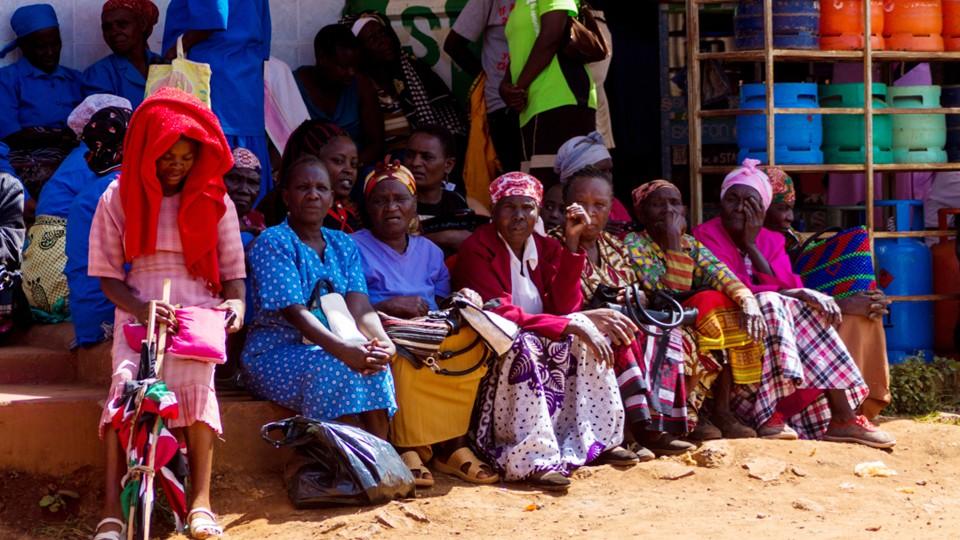Pfizer fears rough ride with NICE over breast cancer drug

Pfizer’s Ibrance breast cancer pill may have been a huge hit in the US, where it has achieved sales above a billion dollars a year already – but the company is gearing up for a rough ride with the UK’s NICE.
NICE is already reviewing cost-effectiveness of Ibrance (palbociclib) in breast cancer after European approval earlier this month.
But David Montgomery, medical director – oncology for Pfizer UK and Ireland, told pharmaphorum that although the drug has been successful in US hospitals, its use as an add-on therapy could pose problems due to the way NICE does its calculations.
Ibrance is indicated as an add-on therapy to hormone treatment in patients with hormone receptor-positive, human epidermal growth factor 2 negative (HR+/HER2-) in locally advanced or metastatic disease
Montgomery is concerned that this "add-on" use could make things tricky when NICE does its calculations.
Experience with Roche’s Perjeta (pertuzumab), also an add-on therapy in breast cancer, demonstrates the drawbacks of NICE’s assessments, according to Montgomery.
While he conceded that NICE does “a very good job in difficult circumstances”, Montgomery is already worried that Ibrance will fare badly with NICE’s cost-effectiveness calculations.
With this type of therapy, NICE includes the cost of the drug associated with the therapy that forms the basis of the treatment, along with the “add-on”.
This approach gives very little leeway for the cost of the new therapy, said Montgomery. NICE itself noted concerns from Roche that Perjeta was not cost-effective at “zero price” because of the already high cost of the therapy it is added to – Roche’s Herceptin (trastuzumab).
Although the £30,000 per Quality Adjusted Life Year (QALY) threshold that NICE applies may sound like a lot of money, it may barely cover the cost to the NHS of the original treatment, said Montgomery.
Montgomery said: “You burn through that £30,000 very quickly. That £30,000 has to cover not just the cost of the patient being alive and well with breast cancer and other costs to the NHS. You are left with very little money for the drug.”
“It is very difficult to show cost-effectiveness within the narrow constraints of NICE.”
Without revealing specifics, Montgomery said that the company will price Ibrance “sensitively in a way that is socially responsible” in the UK.
A former breast cancer doctor who unsuccessfully ran as an MP in Scotland for the Conservative Party in the last election, Montgomery says he is able to see the issues facing NICE, the NHS and the pharma industry when bringing drugs to market.
He says one of the benefits of Ibrance is that it allows women to stay on their first treatment for longer, a psychological boost that vastly improves quality of life.
“The longer you can keep patients on the first treatment the better the patients do,” he said.
Reform of NICE is needed to allow more drugs like Ibrance to market, says Montgomery, although this issue is in danger of being swept under the carpet amid the chaos of Brexit.
“What we need to do is sit down as a group with NICE, the government and the NHS and find a sustainable way [forward].”
But there is little appetite to take things beyond the reforms to NICE already announced this year – where the cost-effectiveness body reviews all cancer drugs and puts them in the Cancer Drugs Fund if there are uncertainties over data.
“There has been relatively little engagement from senior Conservatives on this issue,” said Montgomery.
Like many others in the industry, Montgomery is concerned that problems with NICE may put some companies off developing drugs in the UK, despite the clear advantages of cutting-edge clinical research and the potential efficiencies of using the centralised NHS as a test-bed for new medicines.
“The reality is that we are working in a globally competitive marketplace. I think that there are large competitive pressures from all around the globe,” said Montgomery.












